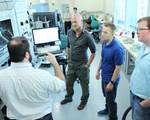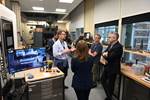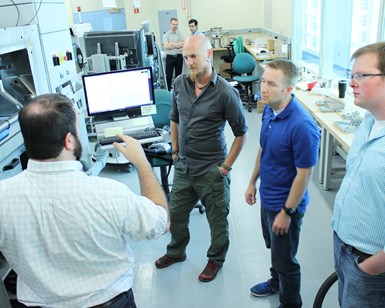4 Ways the Education and Training Challenge Is Different for Additive Manufacturing
The advance of additive manufacturing means we need more professionals educated in AM technology.
Share
Former students in Penn State’s master’s program for additive manufacturing and design. This photo is from a series Stephanie Hendrixson developed about this program. Read more.
The advance of additive manufacturing means we need more professionals educated in AM technology. But AM presents unique challenges in educating engineers who will use it. They include:
- “Additive is a team sport,” in the words of Penn State AM professor Tim Simpson. So many different disciplines interact in AM that communication ability is important in tandem with technical acumen.
- AM’s promise is distributed manufacturing. As that promise is realized, we will need AM engineers to be geographically dispersed, not just clustered in industrial centers.
- How to analyze and learn from failure is a skill and mindset important to impart to AM engineers. Failure is a typical step in AM process. Dr. Simpson and I did a whole AM:WTF series about this.
- In education for AM, there are associate degree options and graduate degree options, but little in between. In an episode of AM Radio all about AM education, Simpson and Stephanie Hendrixson describe the difficulty in developing a four-year option for AM education.
[Items you would add to this list? Contact me. See also a LinkedIn discussion about these points.]
Related Content
-
Six Years After Launch, OSU Has a Leading Facility for Metal AM
At the Ohio State University metal additive manufacturing lab, undergraduate students serve as employees on projects aiming to help companies advance with AM. Here is a look inside the facility now running a dozen metal additive systems.
-
AddUp Receives ASTM Additive Manufacturing Safety Certification
AddUp Inc. announces that it has received the ASTM Additive Manufacturing Safety (AMS) Certification, becoming the first OEM in the AM industry to achieve this significant milestone.
-
Stratasys Partners With NOCTI for First-Ever FDM Process Certification
The recognition from NOCTI marks a significant step toward strengthening education and building competent workforces in the field of additive manufacturing.












